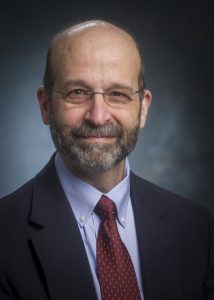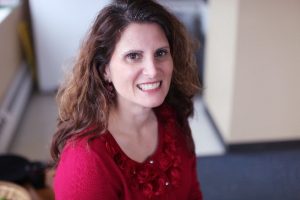The Healthcare Leadership Academy was founded 11 years ago at the University of Alabama at Birmingham. The program is a collaborative program of the Collat School of Business and the School of Medicine and involves participants from all of the health-related schools (e.g. Nursing, Public Health, etc.) and from throughout the UAB Medicine clinical enterprise. It was designed to expose these emerging leaders to fundamental leadership concepts relevant to healthcare leaders and to provide overview of UAB Medicine. The curriculum involves a weekend kick-off session that utilizes the physical challenges of a high-ropes course and is followed by a series of day-long sessions that occur the monthly for the remainder of the 8- month-long program. Participants interact with senior leaders in a small group setting and hear presentations on a variety of leadership-related topics. They also work in small project groups to develop proposals for initiatives that would add benefit to UAB Medicine and the program concludes with a formal presentation of these proposals.
Several of the project proposals have been implemented as actual programs and the participants are particularly appreciative of time with the senior leaders in an intimate setting. Other outcomes of the program were presented in a comprehensive review of the program published in 20141. The most durable valuable outcome of the program are the relationships that the participants form with each other during the experience. Therefore, a recent addition was the creation of a private social media network of both past and present participants with the thought of enhancing this social network by creating connections between all alumni of the program.
In this portion of the webinar, I will discuss the model for the Educational Scholar’s Program, a national educator faculty development program. I will start off with a description of the need that led to the program’s development and the program’s goals, objectives and guiding principles. I will describe the curriculum, both online and in-person components as well as programmatic outcomes
Reference:
1. Savage, G.T., Duncan, W.J., Knowles, K.L., Nelson, K., Rogers, D.A. and Kennedy, K.N., 2014. Interprofessional academic health center leadership development: the case of the University of Alabama at Birmingham’s Healthcare Leadership Academy. Applied Nursing Research, 27(2), pp.104-108.
 Dr. David A. Rogers is a professor in the Departments of Surgery, with secondary appointments in the Departments of Medical Education and Pediatrics and an adjunct appointment in the Collat School of Business. He has served as the Senior Associate Dean of Faculty Affairs and Professional Development at the School of Medicine since 2012 and in this role serves as the co-director of the UAB Healthcare Leadership Academy. He was named the UAB Medicine Chief Wellness Officer and was appointed to the ProAssurance Chair of Physician Wellness in 2018.
Dr. David A. Rogers is a professor in the Departments of Surgery, with secondary appointments in the Departments of Medical Education and Pediatrics and an adjunct appointment in the Collat School of Business. He has served as the Senior Associate Dean of Faculty Affairs and Professional Development at the School of Medicine since 2012 and in this role serves as the co-director of the UAB Healthcare Leadership Academy. He was named the UAB Medicine Chief Wellness Officer and was appointed to the ProAssurance Chair of Physician Wellness in 2018. Melissa Klein, MD, MEd is a Professor of Pediatrics at Cincinnati Children’s Hospital Medical Center and the University of Cincinnati College of Medicine. She serves as the Director of the Primary Care Pathway of the Pediatrics Residency Program, the Medical Director of the On-line Masters of Education program, the Director of the Academic Pediatric Association’s Educational Scholars Program and an Associate Editor for Education in Academic Pediatrics. She has a strong passion for caring for children from underserved communities in a primary care setting. As such, she serves as the physician champion for education for the Medical-Legal Partnership, a Board Member of the area’s largest food bank and recently led the endeavor to start an in-clinic pantry for food insecure families seen in the primary care center. Her main educational research interest focuses on creating innovative educational experiences to improve physician performance and impact patient outcomes.
Melissa Klein, MD, MEd is a Professor of Pediatrics at Cincinnati Children’s Hospital Medical Center and the University of Cincinnati College of Medicine. She serves as the Director of the Primary Care Pathway of the Pediatrics Residency Program, the Medical Director of the On-line Masters of Education program, the Director of the Academic Pediatric Association’s Educational Scholars Program and an Associate Editor for Education in Academic Pediatrics. She has a strong passion for caring for children from underserved communities in a primary care setting. As such, she serves as the physician champion for education for the Medical-Legal Partnership, a Board Member of the area’s largest food bank and recently led the endeavor to start an in-clinic pantry for food insecure families seen in the primary care center. Her main educational research interest focuses on creating innovative educational experiences to improve physician performance and impact patient outcomes.